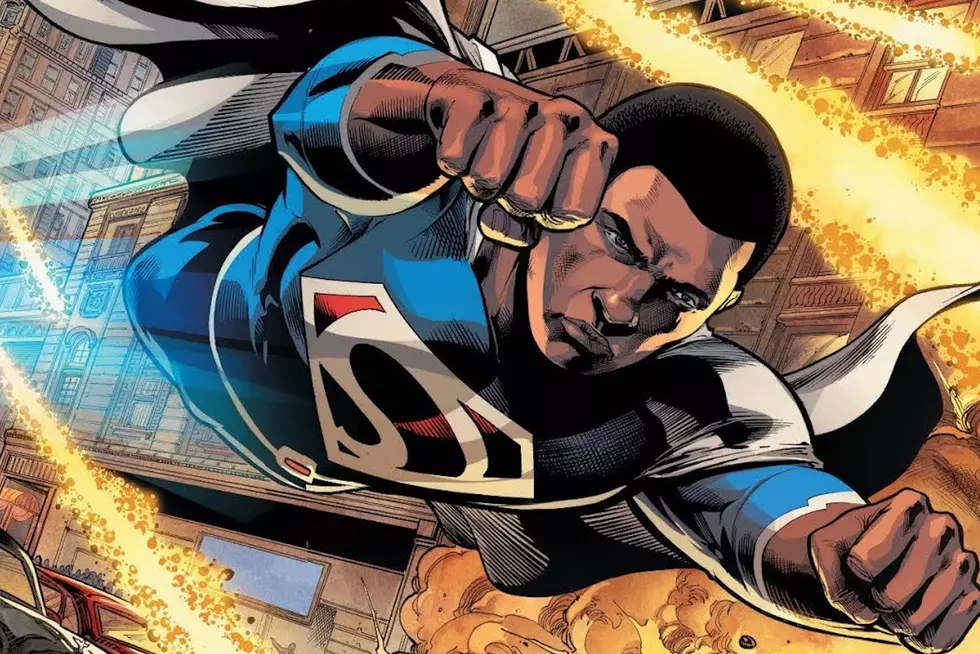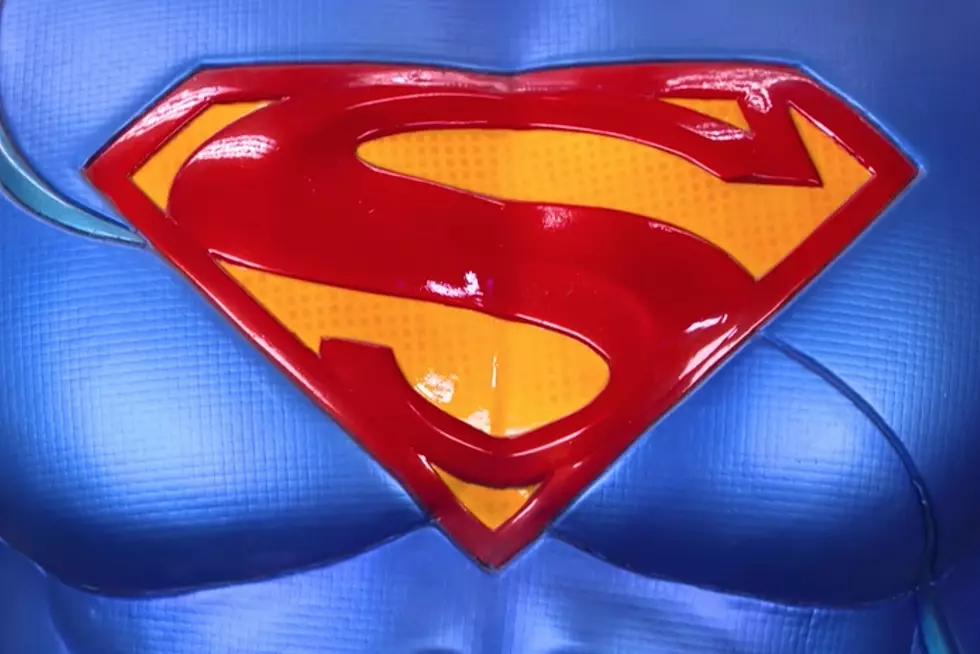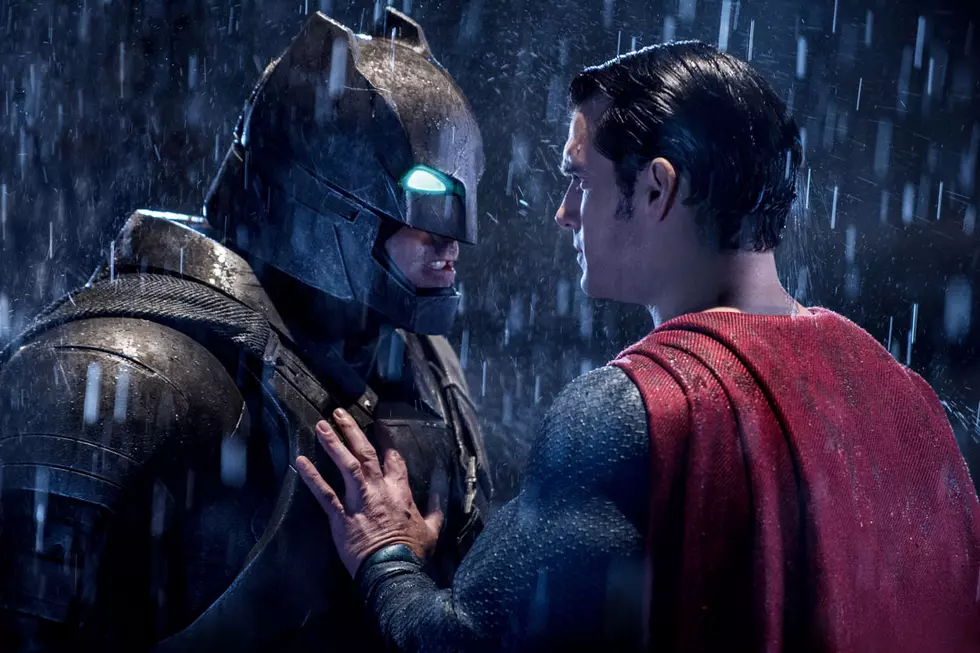
The First Great Adaptation: Celebrating The ‘Adventures of Superman’ Radio Show
"Faster than a speeding bullet! More powerful than a locomotive! Able to leap tall buildings in a single bound!"
"Look! Up in the sky!"
"It's a bird!"
"It's a plane!"
"It's — Superman!"
Nowadays, those words are so inextricably tied to Superman that it's hard to imagine the character existing without them, but it wasn't the comic book page that brought them to audiences. It was the Adventures of Superman radio show, which debuted on this day in 1940 and would spend the next decade helping to shape the character and how people related to him, adding interesting twists and characters to the ongoing mythos and providing the source of genuine change in the world beyond the airwaves.
The Adventures of Superman helped cement Superman as not just the character who kicked off the Golden Age of Comics and the superhero genre, but as a pop cultural force that transcended his native medium to become something bigger, something more. In that respect, it was the first truly great superhero adaptation.
Of course, the radio took a few liberties with the source material to get there. The Clark Kent of the airwaves, played for ten years by actor Bud Collyer, arrived on Earth as a grown man, rocketed from a Krypton that existed in our own solar system, on the other side of the sun. Rather than a kindly couple who raised him in Kansas, the second episode of the show saw a grown-up Kryptonian, costumed in "the cloak and shield of Superman," rescuing two people from a runaway trolley car and then listening to their thoughtful suggestion that he should take the name Clark Kent and get a job as a newspaper reporter in order to meet more people.
But while that change didn't really stick around, there were others that did. The radio show famously introduced Kryptonite to the mythos as an easy source of danger and drama that would, not coincidentally, allow for Collyer to take the occasional day off while his alter ego was rendered immobile and silent in the process. Along those same lines, Batman and Robin occasionally appeared, and Perry White and Jimmy Olsen made their debuts on the radio, too. While they were originally intended as minor characters to allow for exposition, Superman's Pal would go on to be one of the definitive characters of the Silver Age.
Really, though, those additions to the cast, as enduring as they are, pale in comparison to what the radio show was able to accomplish. As Jon Morris put it at The Chronological Superman, its effectiveness went far beyond just adding new stories:
The genuine value of the radio show is that it made Superman (and his cast of characters) personable. By becoming part of the aural landscape of thousands — and even millions — of American homes, the familiar sounds and peculiar phrasings of the cast were engraved onto the public consciousness. Every “gee” and “golly” uttered by Jimmy Olsen, the keen whistle of Superman’s flight, and the rich image created by the description of distant Krypton as “a green star burning in the distant heavens” — were made to come alive in the minds of a rapt audience.
The radio show was the first to teach its audience the call-and-return of “Look, up in the sky!” and rattled off Superman’s bonafides in a somewhat sing-song manner: “Faster than a speeding bullet, more powerful than a locomotive, able to leap tall buildings in a single bound …”
If the original audience has ever felt an emotional intimacy with the Man of Steel, much of it had to do with his radio incarnation.
That sense of familiarity and intimacy led to popularity, and those, in turn, gave The Adventures of Superman the power to effect change in the real world, as we saw in 1946 with "The Clan of the Fiery Cross."
With the help of writer and activist Stetson Kennedy, who had gone undercover to infiltrate the Ku Klux Klan, The Adventures of Superman weaved a story that pit Superman against a thinly veiled analogue of the Klan that used a cloud of secrecy to terrorize the people that fell short of their standards of being "100% American." They were revealed as Nazi throwbacks, but also as a moneymaking scheme that was preying on fears and bigotry to rake in membership dues. The story firmly cast Superman as their enemy, and in the process, spread the message to audiences across the country, and was credited with an almost immediate drop in membership and influence for the real-life KKK.
It's strange to imagine that a character so firmly tied to comic books, a medium that's purely visual, could so easily and so effectively make the transition to a medium of pure audio, but The Adventures of Superman showed that it could be done, and done well --- and that the different versions could build on each other to create something greater.
If you'd like to experience the show for yourself, the Internet Archive has 172 episodes freely available to stream.
More From ComicsAlliance









